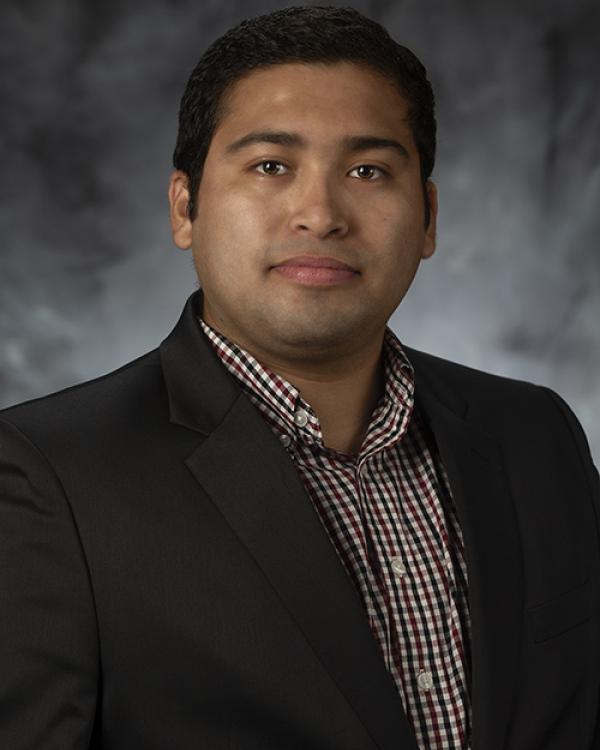
Bertin Solis, a doctoral student in the Department of Education at UC Santa Barbara’s Gevirtz School, has been chosen to be part of the inaugural cohort of the UC-HSI Research Apprenticeship Program (UC-HSI RAP). UC-HSI RAP supports doctoral-level students in the UC who focus their research on Hispanic-Serving Institutions (HSIs). The goal of this program is to support and strengthen the future generations of UC HSI scholars, leaders, and administrators.
Solis is working on his dissertation, Case Studies of Latinx Community College Students' Pathway to Transfer and the Bachelor's Degree. This dissertation examines the academic and career identity pathways of Latinx students transferring from community colleges in California (CA) to a University of California (UC) campus. He draws on three complementary frameworks to guide this qualitative multi-methods case study: The Bridging Multiple Worlds Theory (BMWT), the Multicontextual Model for Diverse Learning Environments (MMDLE), and Cultural Historical Activity Theory (CHAT). Together they provide an analytic framework to examine how immigrant-origin Latinxs navigated pathways to and through college including transfer from community college to a 4-year university. This methodology supports use of ethnographic interviews and prompts specific to Latinx transfer students in order to generate thick-description and analysis of the everyday activities in students’ lives including practices, processes, and policies that supported or hindered their pathway from community college to the 4-year university. The end outcome is to understand how 2-year community colleges and 4-year universities that are Hispanic Serving Institutions in CA can support Latinx students to transfer and complete a UC education including pathways to graduate school and post-college career pathways. The study is important in the context of a growing Latinx population in the U.S. who while enrolling in greater numbers, predominantly matriculate in the community college and have some of the lowest rates of transfer to four-year universities and degree completion of all racial/ethnic groups.
“This recognition would not be possible without the mentorship of my advisor Dr. Richard P. Durán, and committee members Dr. Jeffrey F. Milem and Dr. Rebeca Mireles-Rios, who have been strong advocates of my professional development as an emerging scholar in the study of educational access and equity and have challenged me to think deeply and critically about the role of HSI/MSIs in our societal development,” Solis says. “I am excited to connect with emerging MSI/HSI scholars across the UC system to learn about innovative ways in which our educational institutions can be responsive to demographic and social transformations including concerns about how to support students and communities to take an active stance as agents of change in the context of increased inequality and all types of ever-growing crisis. I welcome conversations with the GGSE community on HSI/MSIs to see how we can be of support to each other towards our shared purpose.”
The new UC-HSI RAP aims to: support dissertation research on HSIs; strengthen professional development for academic, practitioner, policy, and/or advocate-focused careers; engage in peer-learning and mentorship in writing and research development; and, foster opportunities for mentorship with UC and external HSI scholars, leaders, and advocates.
Program highlights include: a six-month cohort program (March- August 2022); $2,500 stipend to support dissertation research; professional development workshops; individualized feedback on research and writing through structured peer group; mentorship from HSI scholars, practitioners, policy makers, and advocates; and, twice-a-month virtual meetings with the cohort of program participants.
Solis is a first-generation college graduate from UCSB where he completed a Bachelor's degree in Sociology with a minor in Educational Studies and a Master’s in Education. He is currently working on completing his doctoral program in the Gevirtz School. His doctoral research examines the college and career pathways of Latinx community college transfer students. Solis is also interested in studying immigrant families' literacy and civic engagement practices. His research aims to develop insights on how educational institutions can transform their practices to better serve historically underserved students and communities.